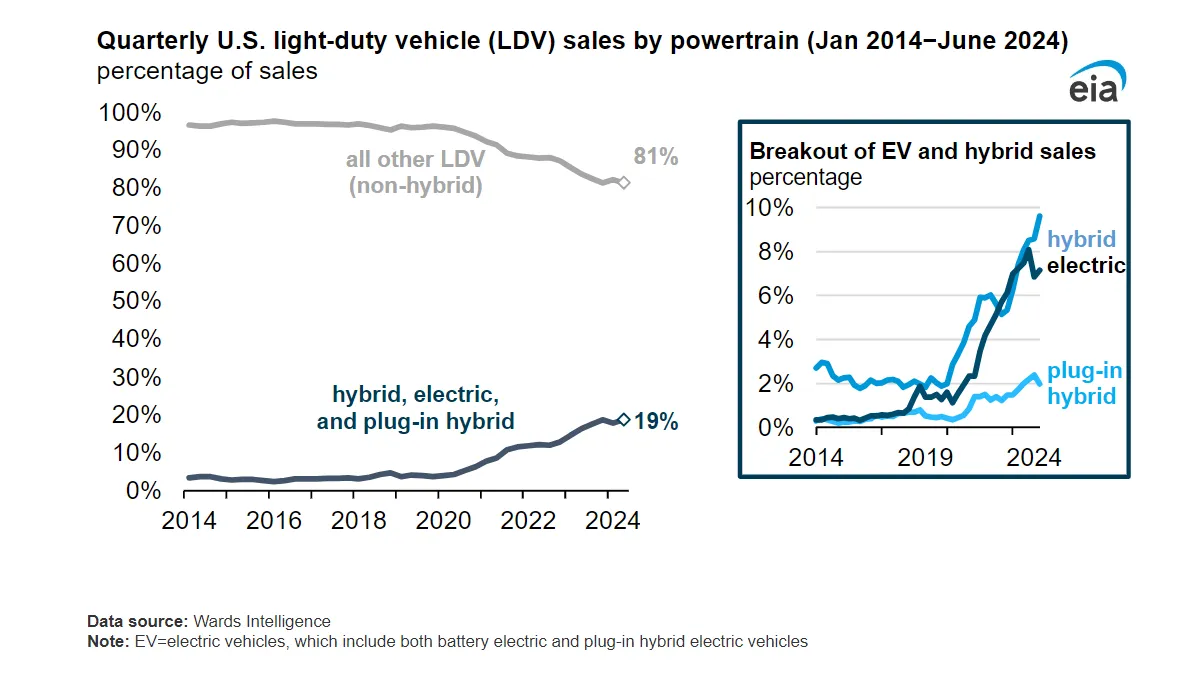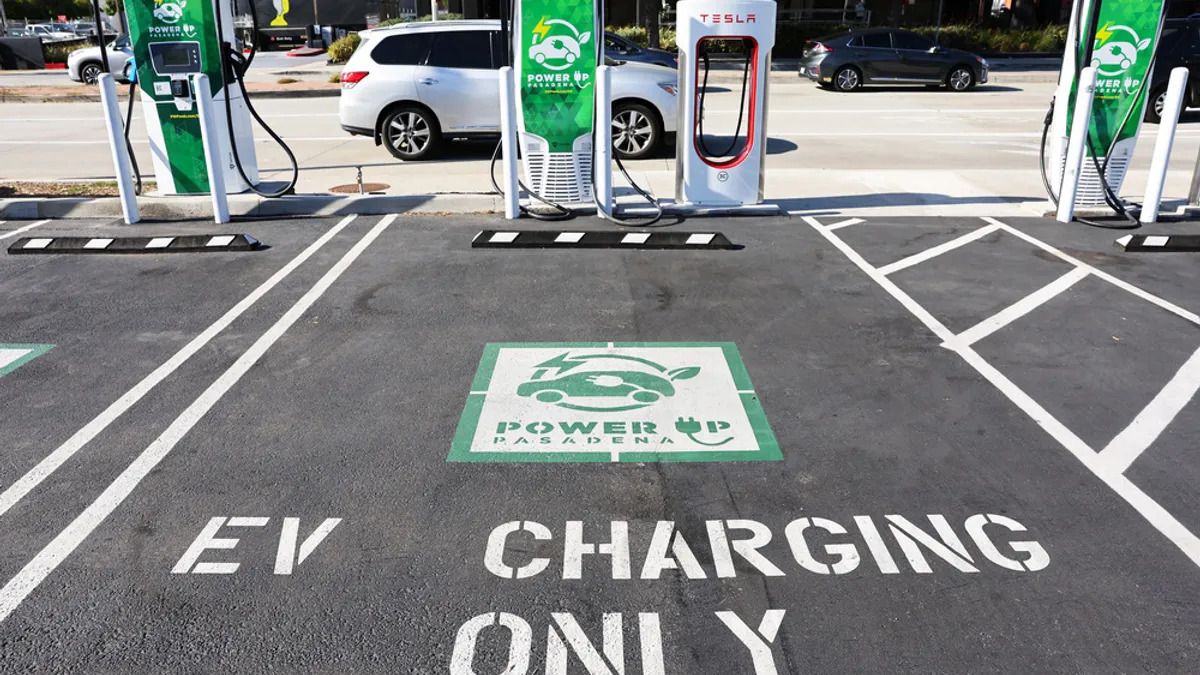Dive Brief:
- The U.S. Department of Transportation on Tuesday announced $521 million in grants to deploy more than 9,200 electric vehicle charging ports and build alternative-fueling infrastructure across 29 states, eight tribal areas and the District of Columbia.
- The funding is being made available through the Infrastructure Investment and Jobs Act, which has catalyzed investment in EV charging. The number of public EV chargers has doubled since President Biden took office, to more than 192,000, according to DOT.
- Despite the charger buildout, U.S. EV sales growth has flattened in the last year, the U.S. Energy Information Administration said Monday. Battery-only EVs accounted for 7.1% of the U.S. light-duty vehicle market in the second quarter of this year, “a similar share to 2Q23,” EIA said, citing data from Wards Intelligence.
Dive Insight:
The U.S. is adding about 1,000 public EV ports each week, through a mix of private and federally-backed investment, according to DOT.
The funding announced Tuesday comes through the IIJA’s $2.5 billion Charging and Fueling Infrastructure Discretionary Grant Program and a 10% set-aside from the National Electric Vehicle Infrastructure Formula Program.
“Together, these programs have spurred private investments in growing the nation’s EV charging network and are actively deploying chargers across the country,” the Federal Highway Administration said in a statement. “These historic investments are going to accelerate the country’s transition to a clean energy economy while reducing pollution and harmful greenhouse gas emissions.”
About $321 million of the funding will go to expand EV infrastructure within communities and $200 million will go towards fast-charging projects along designated Alternative Fuel Corridors.
The largest grant is $102 million for the California Department of Transportation to deploy charging and hydrogen fueling stations for zero-emission medium- and heavy-duty vehicles along 2,500 miles of key freight corridors on the West Coast to connect ports, freight centers and agricultural regions between the U.S., Mexico and Canada.
Almost $33.5 million will go to the Maryland Clean Energy Center and its partners to install EV charging at 29 sites, and for a workforce development and job creation program.
DOT awarded $15 million to the Confederated Tribes of Colville to install EV charging infrastructure at 12 sites within the Tribe’s reservation boundaries, including remote, disadvantaged communities.
A full list of grant awards can be found here.
The Biden administration is rolling out billions of dollars to support the transition to clean transportation. In January, the Federal Highway Administration tapped 22 states and Puerto Rico to receive $623 million in grants to build electric vehicle charging and hydrogen fueling infrastructure.
The president has said he wants half of all new passenger vehicle sales in the U.S. to be electric vehicles by 2030. But recent sales data show the speed of EV adoption is slowing.

“The share of electric and hybrid vehicle sales in the United States increased in the second quarter ... after a slight decline in 1Q24,” EIA said Monday. Sales of hybrid vehicles, plug-in hybrid EV, and battery-only EVs increased to 18.7% of second quarter new light-duty vehicle sales, up from 17.8% in the first quarter of the year.
“This slight increase in the electric and hybrid vehicle market share was driven primarily by hybrid electric vehicle sales, which increased by 30.7% year over year,” EIA said.














